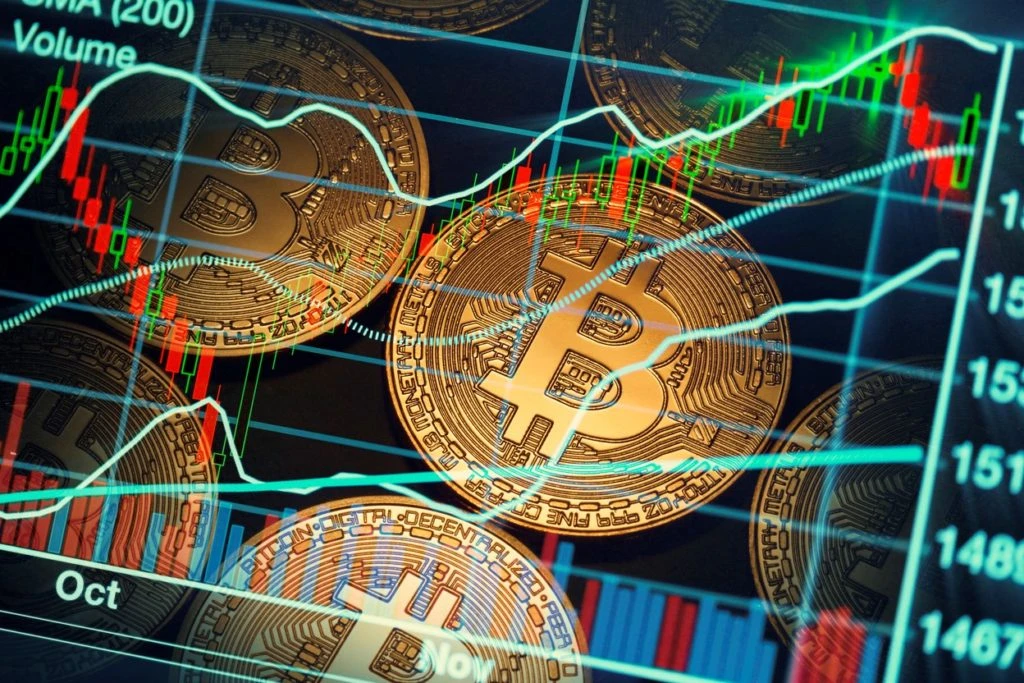Imagine yourself at a Las Vegas casino. The person next to you bets $1,000 at roulette. A moment later, the ball lands on red and the gambler doubles his money.
When it comes to a casino, we all know that Roulette is a game of luck. No skill is involved. But when it comes to stocks, crypto, or anything that appears to have slightly more legitimacy than a roulette wheel, we call predictions “right” or “wrong”, this even though the short-term direction of securities prices cannot be determined on any logical basis. They cannot be! This is not even debatable: this is fact!
Do not be like so many people that acknowledge the fact that Roulette is a game of luck and cannot get it into their head when it comes to stocks or cryptos. The reality is that all data shows that the short-term direction of a bond, a stock, currency, or market is unknowable. The only thing knowable is whether the stock is an equity stake in a quality company selling at a reasonable price. This can only be determined by looking at the underlying fundamental financials of the company as shown on the profit statement, cash-flow statement, and balance sheet. And this can only lead to predicting a reasonable price appreciation over long-term business cycles of at least 3–5 years. Anything else is noise and nonsense.
The key to successful investing is to know what you cannot know
People think the job of a financial professional or analyst is to guess the direction of prices, state that publicly, trade accordingly, and then win or lose. There is no successful investor in the history of investing who has ever employed this method. This dubious “strategy” is most likely to result in complete and utter failure. This is called gambling. This is called speculation.
One of the most successful investors of the world, not to say the greatest, with an audited track records to prove it, Warren Buffett has always followed a different approach: a selection of stocks not based on trying to predict the direction of blips on a screen but rather fundamental elements like cash-flow growth over long periods of time.
The difference between being an investor, a gambler and a speculator is the difference between being successful over time and being successful for a lucky moment. There is a fundamental difference between gambling/speculating and investing: gambling and speculating are just short-term in nature, while investing looks at a longer time horizon. Gambling/speculating, and investing are entirely different acts, borne of entirely different philosophies, and inspired by entirely different underlying mental analyses.
Though nothing can ever be guaranteed, the value investor knows that companies that generate cash have expected returns that can be reasonably predicted. The value investor still makes mistakes, and nearly always forgoes the most glamorous, flashy, and trendy investments. But the value investor’s concentration on measurable cash flows and the price paid for them renders it the only strategy that respects economics over time. And the only strategy that should be used to plan a retirement.
The worst reason to buy something is that it just went up. The second-worst reason to buy something is that it just went down. The third-worst reason to buy something is because someone that you do not even know says you should buy it. On the contrary, the only good reason to buy something is because it is a quality asset that is undervalued, a determination that can only, only be made by looking at the underlying financial statements.
Most people quickly forget how awful it is when momentum/growth strategies fail. Your investment collapse 67% and the rise back 68%. You may think your mojo is back… until you realize that a 67% loss followed by a 68% gain still leaves you 45% below your starting point. This is the math of reverse compounding. Let’s look at it in dollars: Your $100 investment collapses to $33 after a 67% loss but returns to just $55 after a 68% recovery; his is only half its starting value. This is one of the problems with growth/momentum investing. It looks great during short, selected time periods, but due to the astonishing losses it endures, its long-term track records are typically poor.
Growth/momentum investing is based on the principle of buying new and innovative companies that look like they can establish dominance over time. But the problem is that paying too much for any asset, no matter how disruptive, ascendent, or pioneering, is a recipe for eventual failure, even if it leads to huge gains in the short-term. At least growth investing tends to look at stocks as businesses. And this makes it far superior to pure speculation of the type which tries to predict macroeconomic conditions, markets, or the short-term direction of securities prices.
Perhaps the worst type of speculation occurs around assets whose value is derived not from the underlying cash flows but from reasons of scarcity. This would include things like crypto, commodities, and raw currencies. Not one of these things produces cash. In each case it can be traded for cash, but it cannot produce cash. This creates two problems: First, they cannot be valued, because only producers of cash can be valued based on their yield. And second, since they have no yield, you do not get paid to wait.
When Bitcoin was trading all the way up to $69,000. Many people were wondering if Bitcoin’s value was over evaluated. When it dropped from $69,000 to $17,000, the questions about Bitcoin quickly stopped. But now that it is returned to $43,000, interest is once again percolating. I do not forgo Bitcoin because I think it will collapse, or because I believe it is overvalued, or because it will not go mainstream as a reserve currency. It probably will. I do not buy Bitcoin because it produces no cash and cannot be valued, and therefore to purchase it is an exercise in pure speculation, not investing. This is wholly intrinsic to my investment philosophy. The only way to generate cash with cryptocurrencies is to buy long and sell short during a very short period of times. I am talking minutes, even seconds and, you are better making sure to know what you are doing.
In the best possible circumstances and the best possible scenario, cryptocurrencies trading would generate a possible 20% to 25% interest on your short-term gambling/investment. Is this worth it? Let’s look at in in dollars: at 20%, $100 will bring you $20; $10000 will bring you $2,000; $100,000 will bring you $20,000. Is this worth it? Only if you are right 100% of the time and if you have the capital to go large. Cryptocurrencies are only gambling and speculation; nothing else, whatever you may hear, read, or see.
What is reassuring about value investing is not that it is always right, or that it always works in the short term, or that it leads one to get rich quick. It does not. It is that it harnesses economic reality to make sure that every dollar is working for the investor at every minute of the day so that the investor can get rich slowly. And that is much better than getting poor quickly which is what most speculators do in the end.
Michel Ouellette JMD, ll.l., ll.m.
JMD Live Online Subscription link.

J. Michael Dennis, ll.l., ll.m.
Personal & Corporate Fixer
Skype: jmdlive
Email: jmdlive@jmichaeldennis.live
Web: https://www.jmichaeldennis.live
Phone: 24/7 Emergency Access
Available to our clients/business partners
Disclaimer: All write-ups and articles do not constitute financial and legal advice in any way whatsoever but for information purposes only.
When making financial and legal decisions and commitments, we strongly recommend you consult your professional financial and legal services provider. Our website uses referral links to various crypto exchanges as a means of monetization. We appreciate it if you choose to use the in-article links, but the decision is ultimately yours.

